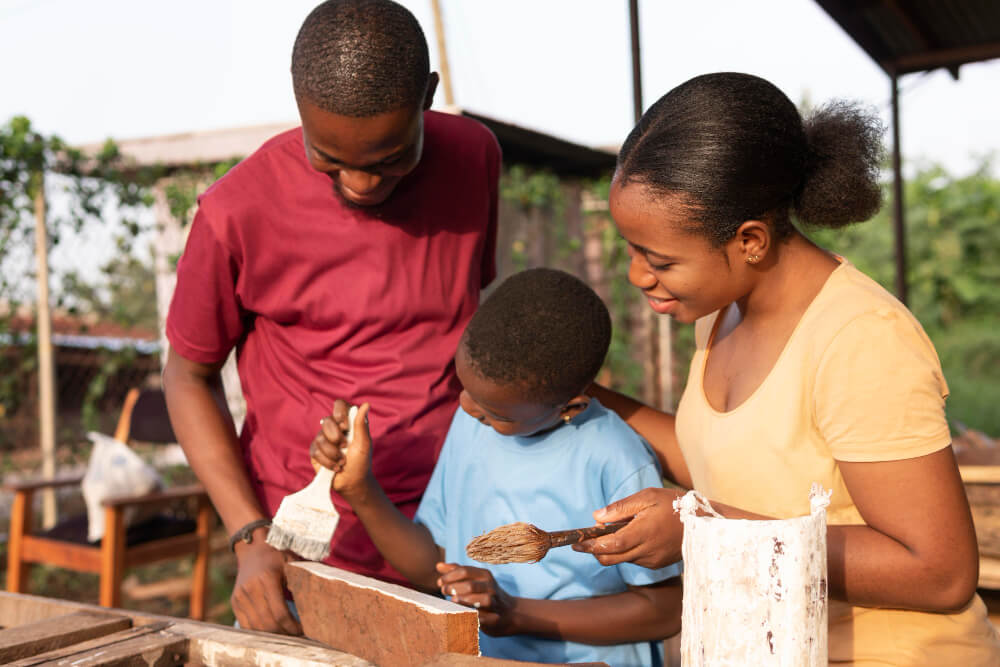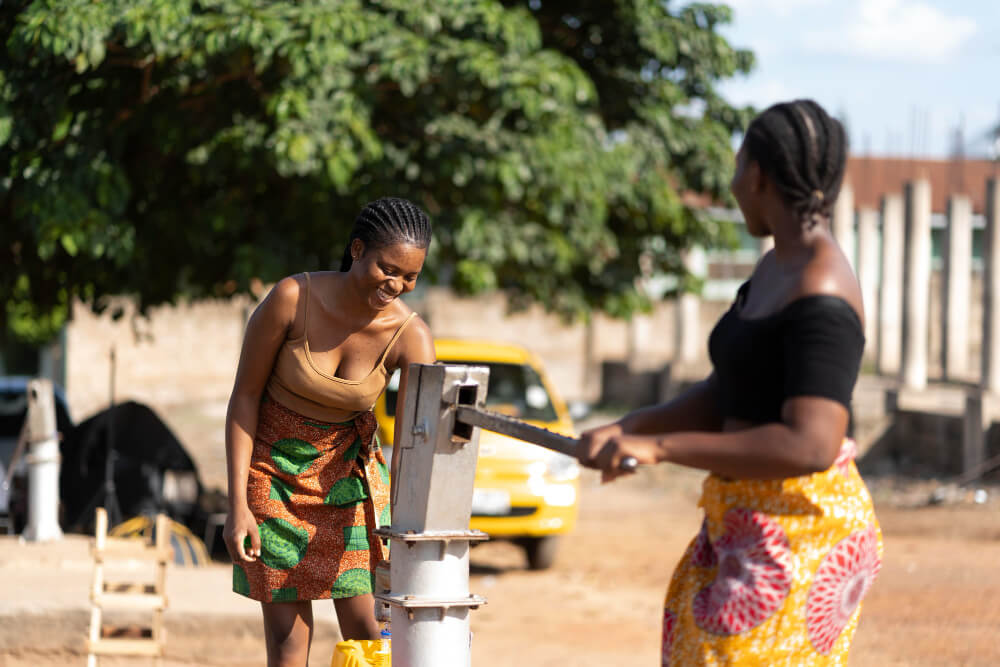Imagine living in a place where electricity is a luxury—where power outages last for days, businesses struggle to survive, and students rely on candlelight to study.
For millions of Nigerians, this isn’t just an occasional inconvenience; it’s daily life. With over 85 million people lacking access to electricity, communities across Nigeria have had to find alternative solutions.
That’s where solar energy comes in. In recent years, solar power has emerged as a game-changer, lighting up homes, powering businesses, and even saving lives in hospitals.
But is it truly reliable? Can it work for people in rural areas? And most importantly—are there real-life examples of solar energy making a difference?
The answer is a resounding yes. Across Nigeria, solar energy projects are transforming entire communities, providing sustainable, affordable, and reliable power where traditional electricity has failed.
From rural villages to urban settlements, families and businesses are experiencing firsthand the impact of clean energy.

Why Are Nigerian Communities Turning to Solar Energy?
For many Nigerians, electricity is a daily struggle. Frequent blackouts, high fuel costs for generators, and unreliable grid connections make it difficult to power homes, schools, and businesses.
With over 85 million Nigerians lacking access to electricity, alternative energy sources have become crucial.
Common concerns many people have about solar energy include:
- Can solar energy really provide consistent power?
- Is it affordable for rural communities?
- Are there real-life success stories of solar adoption making a difference?
The short answer? Yes. Across Nigeria, solar energy is transforming lives by providing reliable and sustainable power, especially in rural areas.
This article explores inspiring success stories, highlighting the real impact of solar power on Nigerian communities.
How Solar Energy Brought Light to Gbamu Gbamu
Gbamu Gbamu, a small village in Ogun State, struggled with poor electricity supply for years.
Residents depended on expensive and polluting diesel generators for power, but this wasn’t sustainable.
Then came the Gbamu Gbamu Solar Mini-Grid Project, launched by a renewable energy company in partnership with the Rural Electrification Agency (REA).
This mini-grid now powers homes, schools, and small businesses. Results?
The Impact:
- Children can study at night with proper lighting.
- Small businesses thrive with steady electricity for freezers, sewing machines, and internet access.
- Families save money by cutting out generator fuel costs.
- Carbon emissions have decreased, reducing air pollution and health risks.
Local shop owners, tailors, and traders now operate more efficiently, boosting the village economy. For many residents, it’s a game-changer that has improved their quality of life.
Solar-Powered Water Pumps in Katsina
In northern Nigeria, many rural communities struggle to access clean water. Women and children walk miles daily to fetch water, taking time away from school and work.
In Katsina State, a solar-powered water project changed the situation. Solar boreholes were installed to provide clean drinking water to thousands.
These boreholes use solar panels to pump underground water, ensuring a reliable and sustainable water source.
The Impact:
- Farmers benefit from better irrigation, improving crop yields and food security.
- Women and children save hours every day, allowing kids to attend school and parents to focus on work.
- Health improves as clean water reduces diseases like cholera and typhoid.
- Local economies grow as water becomes available for agricultural businesses.
The Katsina project has not only improved living standards but also reduced waterborne diseases, proving how solar power can address multiple challenges beyond electricity.
Makoko’s Floating Solar Innovation
Makoko, an informal settlement on Lagos Lagoon, is often called the “Venice of Africa.” Homes are built on stilts, and electricity access is extremely limited.
To address this, engineers and community leaders developed floating solar panels.
These solar-powered systems generate electricity for homes, schools, and small businesses, bringing much-needed power to the area.
The Impact:
- Schools can operate efficiently, offering better education to children.
- Businesses like barbershops, fish preservation units, and retail stores now have power to expand their services.
- Community members save money by eliminating generator fuel costs.
- Pollution is reduced, as reliance on diesel generators decreases.
Makoko’s success is inspiring other communities in coastal and riverine areas to explore floating solar energy solutions.
Solar-Powered Health Clinics in Borno State
Borno State, in northeastern Nigeria, has faced years of conflict and displacement due to insurgency.
Many healthcare centers were abandoned or lacked power, making it difficult to provide medical services.
With support from international organizations, solar-powered health clinics have been established.
These clinics now operate 24/7, providing essential medical care to displaced people and local residents.
The Impact:
- Vaccines stay refrigerated, preventing spoilage.
- Doctors perform life-saving procedures even at night.
- Emergency services operate efficiently, treating more patients.
- Maternal and child healthcare improves, reducing birth-related complications.
Solar energy has made a huge difference in healthcare delivery, ensuring that even remote communities have access to quality medical care.
Rural Schools in Nasarawa Get a Solar-Powered Boost
Education in rural Nigeria is often limited by lack of electricity. In many villages, schools have no lights, fans, or access to digital learning tools.
In Nasarawa State, a solar project has transformed schools by installing solar panels on rooftops.
The Impact:
- Students can study after dark, improving academic performance.
- Teachers use computers and projectors, making lessons more engaging.
- Security improves with streetlights around schools.
- Enrollment increases, as parents see better learning conditions.
This initiative is bridging the educational gap between urban and rural areas, showing how solar energy supports learning.

Challenges and Opportunities for Solar Expansion in Nigeria
While these success stories highlight solar energy’s potential, many Nigerian communities still lack access. To expand solar energy, we need:
More Investment in Solar Mini-Grids
- The Nigerian government and private investors must fund more mini-grid projects like the one in Gbamu Gbamu.
- Mini-grids can power entire villages, reducing reliance on expensive national grid connections.
Affordable Solar Financing Options
- Many families can’t afford upfront solar costs.
- Pay-as-you-go (PAYG) solar systems allow people to pay for energy in small installments, making it more accessible.
Government Policies and Incentives
- Import duties on solar equipment should be reduced.
- More tax incentives can encourage businesses to invest in renewable energy.
Public Awareness and Education
- Many Nigerians are unaware of solar’s long-term benefits.
- Awareness campaigns can educate people on how to transition from generators to clean energy.
How You Can Get Involved
Solar energy has the power to transform lives, but we need more community participation. Here’s how you can help:
- Support solar energy initiatives by donating to organizations installing solar panels in rural areas.
- Advocate for better energy policies that promote renewables.
- Share success stories to inspire others to adopt solar power.
- Consider switching to solar for your own home or business.
Do you know a community benefiting from solar energy? Share your story in the comments! Let’s keep the conversation going and inspire more change.
Final Thoughts
Solar energy isn’t just a theoretical solution—it’s a real-life game changer for many Nigerian communities.
From lighting homes to powering schools, hospitals, and businesses, solar technology is making life easier and more affordable.
As more success stories emerge, we move closer to a brighter, more sustainable future for Nigeria. Investing in solar isn’t just about power—it’s about empowering people.
